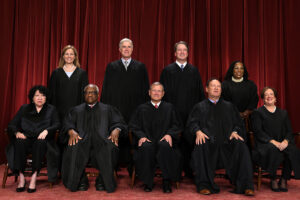
Recent research conducted by Dr. Will Gervais from Brunel University London challenges the assumption that society is progressively becoming more atheist. Despite living in secular environments, even staunch atheists might unconsciously favor religious belief.
Published in the Proceedings of the National Academy of Sciences, the study explores the concept of “belief in belief,” a term introduced by philosopher Daniel Dennett. This idea posits that people often view religious faith as beneficial for society, irrespective of their personal beliefs.
Dr. Gervais and his team surveyed approximately 3,800 individuals from eight predominantly non-religious countries: Canada, China, the Czech Republic, Japan, the Netherlands, Sweden, the United Kingdom, and Vietnam.
The researchers employed scenarios utilizing the “Knobe effect,” which is used to examine moral judgment and perceived intentionality. This effect highlights how people tend to see harmful actions as more intentional than beneficial ones.
For instance, when a company policy harms the environment but increases profits, most people perceive the harm as intentional even if the CEO expresses neutrality towards environmental outcomes. Conversely, if the policy benefits the environment, it is less likely to be viewed as intentional.
In the research study, participants assessed a scenario involving a journalist whose published story either increased atheism or religious faith. The results revealed that participants were 40% more likely to believe the journalist intentionally caused a rise in atheism compared to fostering more believers.
This perception persisted across most participating countries and was evident even among atheists. Dr. Gervais noted, “Our participants intuitively viewed creating more atheists as similarly intentionally caused – a spiritual rather than environmental pollution, perhaps.”
The findings suggest a deep-seated intuition that religious belief is beneficial to society, which may be why a reduction in such beliefs is often viewed as intentional disruption.
Dr. Gervais contextualizes these insights within a historical and cultural framework. According to him, “Over cultural evolutionary time, the association between religious belief and moral goodness has become deeply culturally ingrained.”
Despite the decline of formal religious practices in several regions, these moral associations continue to influence personal intuitions. In his book, Disbelief: The Origins of Atheism in a Religious Species, Dr. Gervais explores how deeply religious humans have increasingly turned to atheism.
The book discusses how religion has historically been crucial for human cooperation and societal development by establishing moral norms and collective identities. The study indicates that the enduring impact of religion leaves cultural traces, even as overt religious expressions fade.
“Because religions have exerted tremendous influence on our societies for millennia, it would be genuinely surprising if some latent religious trace didn’t culturally linger as overt expressions of faith decline,” Dr. Gervais writes.
These findings complicate the narrative of an emerging secular age. “Belief may be wavering in many countries,” writes Dr. Gervais, “but belief in belief persists, complicating any conclusion that we’ve truly entered an ‘atheist age’.”
The study implies that support for religion may be more deeply embedded in human psychology and culture than previously acknowledged, even among those who consciously reject faith. While it does not suggest atheists secretly believe in God, it does indicate that religious belief is still perceived as beneficial, making it challenging to separate from secular identities.
This article was originally written by www.christiantoday.com







Be First to Comment